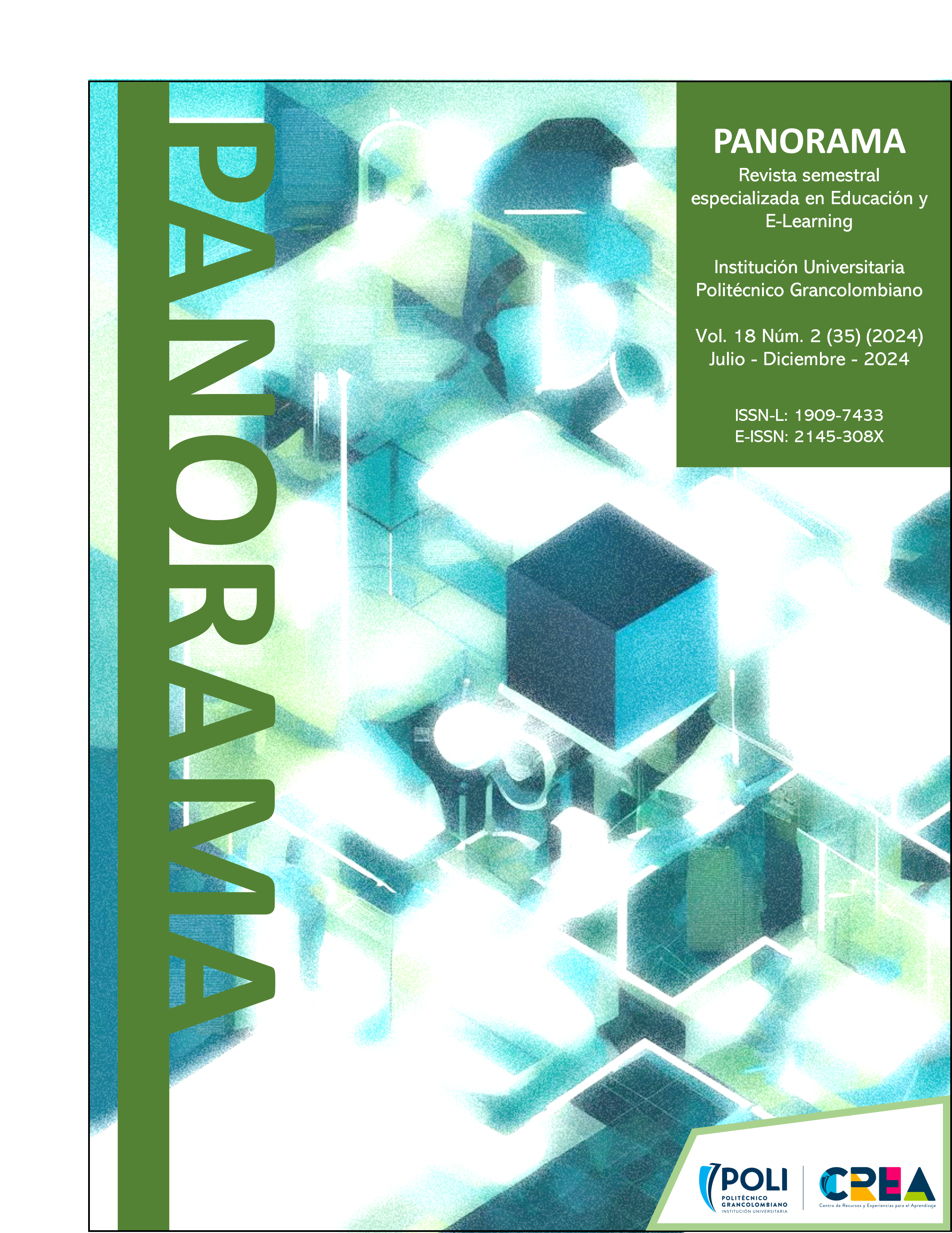Abstract
The purpose of this paper is to systematize the pedagogical experience of its author who, using the activities of public debate and conceptual reflection in the Accounting Theory Seminar subject, manages to compose a pedagogical strategy composed of three moments: a priori individual conceptualization; public-collective debate and individual conceptualization a posteriori, which makes it possible to increase the comprehensive learning of the epistemological and conceptual nature of accounting in the students of this subject. The methodological structure has a qualitative and quantitative approach that allows to advance an exploration and description of the conception about Accounting of this group of students of the public accounting program of the North Cauca campus of the Universidad del Valle, enrolled during the first semester 2022. For this, analytical-deductive methods and research techniques of content and discourse analysis are used to determine, from a series of general (implicit and explicit) and specific (epistemological status) study categories, the degree of argumentative coherence presented by the concepts supplied by the student population. The results of the academic experience allow us to conclude that the application of the pedagogical strategy increases the understanding and learning about the epistemological statute and the conceptual structure of accounting, as well as generating a pleasant, dynamic and innovative space that encourages deliberation and confrontation of ideas in the university context, which results, finally, in the improvement of the formative processes of the students.
References
Arroyo, Miguel G. (2003). Pedagogias em movimento – o que temos a aprender dos Movimentos Sociais? Currículo sem Fronteiras, 3(1), Jan/Jun, 28-49.
Bernal-Torres, C. (2006). Metodología de la investigación: para administración, economía, humanidades y ciencias sociales. Pearson Educación. 4° edición.
Briones, G. (1996). Epistemología de las ciencias sociales. Bogotá. Instituto Colombiano para el Fomento de la Educación Superior (Icfes).
Burbano, A. C. (2018). Teoría y práctica de la sistematización de experiencias. Universidad del Valle.
Czarniawska, B. (2004). Narratives in social science research. Sage.
Comité de programa Académico de Contaduría Pública (2017). Proyecto Educativo del Programa. Cali: Facultad de Ciencias de la Administración. Universidad del Valle.
Cortina, Adela. (1995). La educación del hombre y del ciudadano. Revista Iberoamericana de educación, 7(1), 41-63.
Deleuze, G., y Guattari, F. (1993). ¿Qué es la filosofía? Barcelona: Anagrama.
Elliott, J. (2005). Using narrative in social research: Qualitative and quantitative approaches. Sage.
García-Casella, C. (2012). La tesis en el saber contable. Contabilidad y auditoría, (21), 9p.
Gómez-Villegas, M. (2011). Pensando los fundamentos de la contabilidad como disciplina académica. Lúmina, 12, 120-151.
Hincapié, J. P., y Rincón, L. M. (2017). Influencias del criterio de razonabilidad en la representación contable y la toma racional de decisiones. Contexto, 6, 57-69.
Hincapié, J. P. (2019). Análisis crítico del contenido discursivo: una aproximación hermenéutica al concepto de activos intangibles desde dos perspectivas normativas. Criterio Libre, 17(31), 113-144.
Íñiguez, L. (2011). Análisis del discurso. Manual para las ciencias sociales. Barcelona: Editorial UOC.
Kant, I. (1994). Respuesta a la pregunta: ¿Qué es la Ilustración? Trad. Rubén Jaramillo V. Revista colombiana de psicología, (3), 7-10.
Mardones, J. M. (1991). Filosofía de las ciencias sociales y humanas. Antropos. España.
Méndez-Álvarez, C. (1997). Metodología Guía para elaborar diseños de investigación en ciencias económicas, contables y administrativas. Mc Graw Hill.
Ojeda de López, J., Quintero, J., y Machado, I. (2007). La ética en la investigación. Telos, 9(2), 345-357.
Perkins, David. (1999). ¿Qué es la comprensión? En: M. Stone-Wiske (Comp.). La enseñanza para la comprensión: vinculación entre la investigación y la práctica (69-94). Paidós.
Popper, Karl. (2001). El conocimiento de la ignorancia. polis. revista latinoamericana, N° 1.
Quiceno-Castrillón, Humberto. (2011). Epistemología de la pedagogía. Ediciones Pedagogía y Educación.
Santos, de Sousa Boaventura. (2019). Educación para otro mundo posible. Centro de Pensamiento Pedagógico (CEDALC), CLACSO.
Universidad del Valle, Programa académico Seminario de teoría contable. (s.f.), 5p.
Vargas Guillén, Germán. (2006). Tratado de epistemología: fenomenología de la ciencia, la tecnología y la investigación social. Editorial San Pablo.
Van Dijk, T. A. (2001a). El estudio del discurso. En Teun van Dijk (Comp.). El discurso como estructura y proceso (Vol. I) (pp. 21-66). Barcelona: Gedisa.
Van Dijk, T. A. (2001b). El discurso como interacción en la sociedad. En Teun van Dijk (Comp.). El discurso como interacción social (Vol. II) (pp. 19-66). Barcelona: Gedisa.
Vygotsky, Lev. (1995). Pensamiento y Lenguaje. Ediciones Paidós.

This work is licensed under a Creative Commons Attribution-NonCommercial-NoDerivatives 4.0 International License.
Copyright (c) 2024 Panorama





